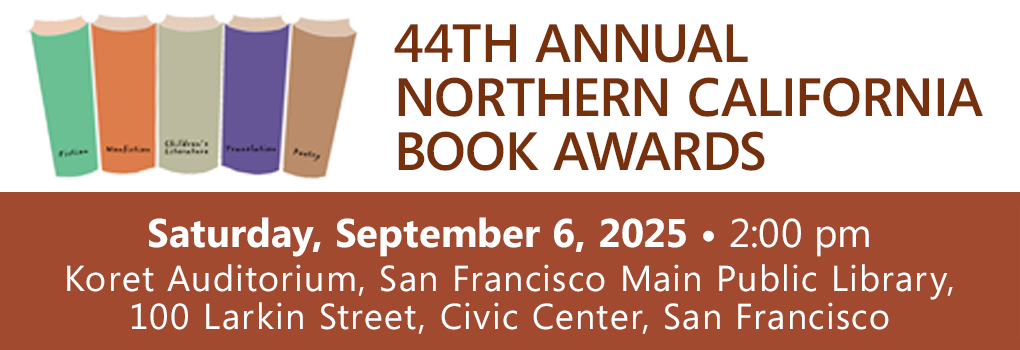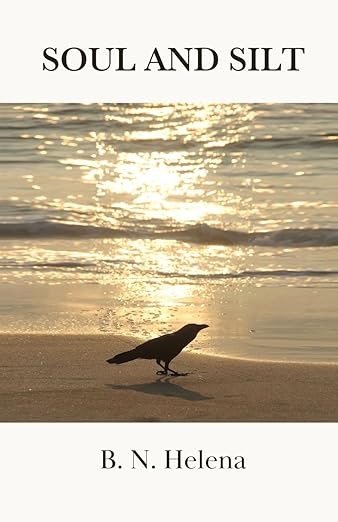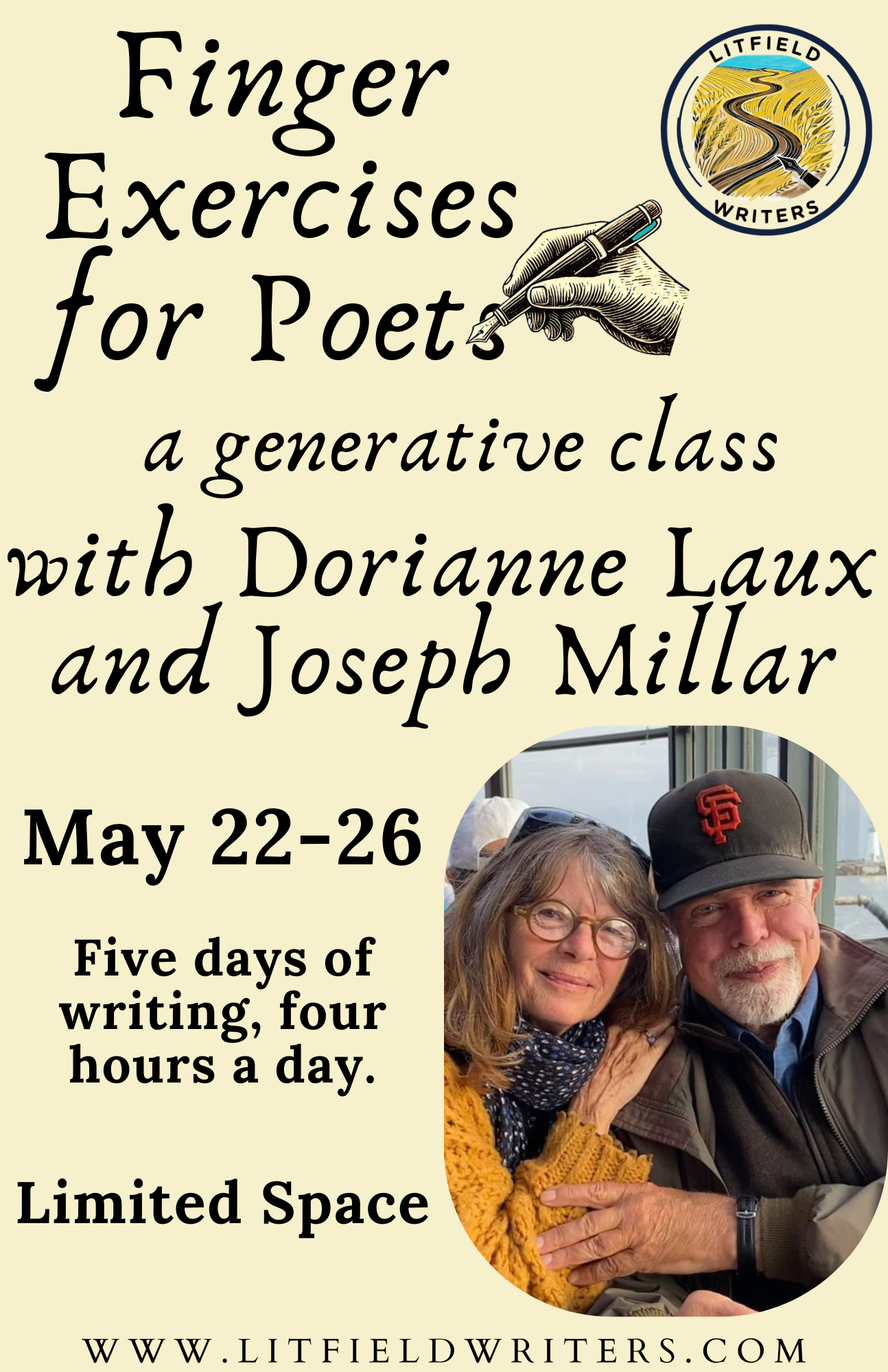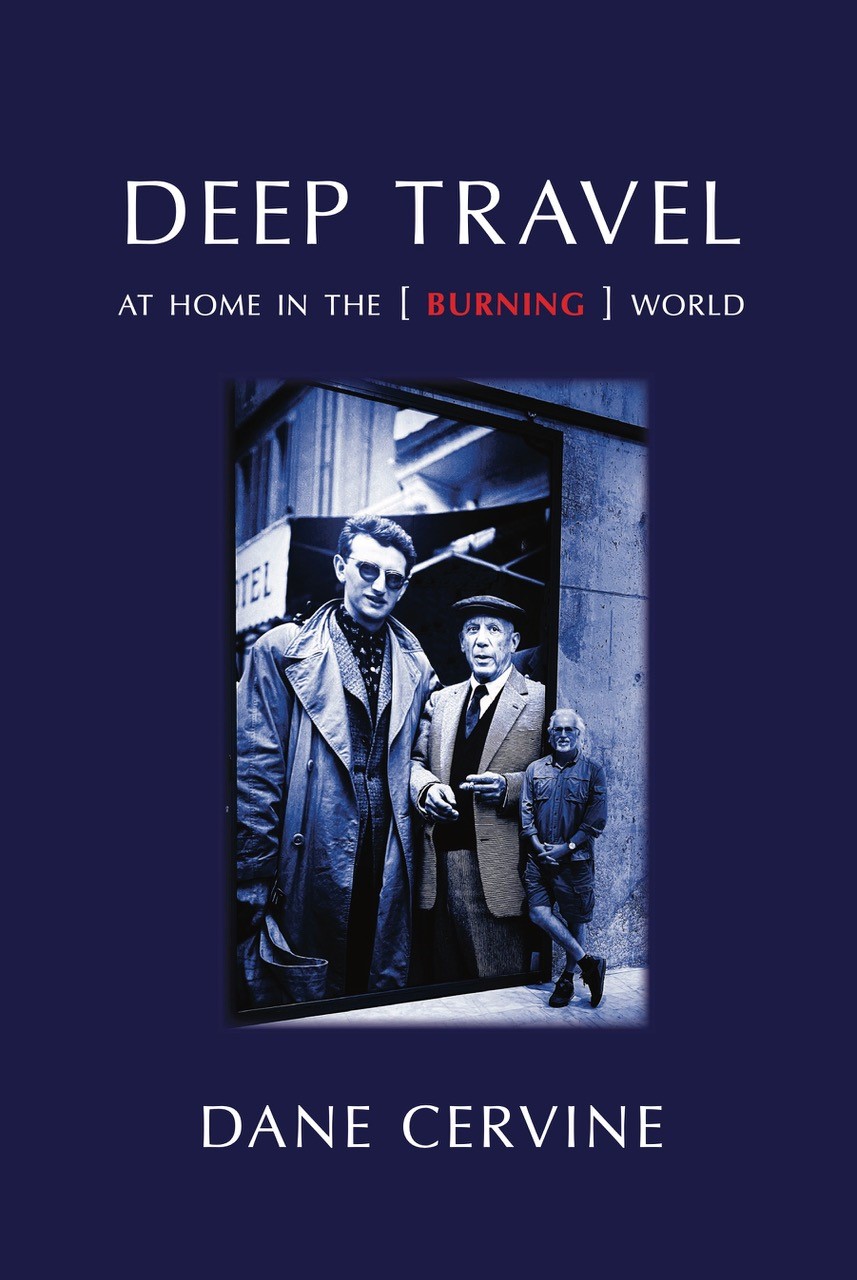
Searching for Water
by Richard Silberg
An Ordinary Life, by B.H. Fairchild, W.W. Norton & Company, New York, NY, 2023, $26.95 hardcover, $16.99 paperback, 72 pages, wwnorton.com/books/9781324036852.
AN ORDINARY LIFE MOVES in a rush, a fullness of voices and stories:
…the ones who had not
fled the dust storms but stayed and somehow
held their farms against the darkening skies,
burnt-out crops, and topsoil blown for miles,
who placed wet cloths across their infants' cribs,
dug shallow graves, and spoke small, awkward prayers
for livestock that smothered in the heavy air.
And please remember Caroline Henderson,
who farmed wheat and taught Caesar's Latin
after evening chores, and German, to her only
child that she might one day study medicine,
who left the faith for lack of reason,
read Jefferson and Meridel Le Sueur,
and thought some saints, perhaps, were not yet dead.
She prayed in her angry, solitary way
against the dust and her daughter's coughing
through the night, yet somehow kept the farm
and loved the land in ways today we cannot
understand. And then died. From pure exhaustion
rather than pneumonia, her daughter,
Eleanor Henderson, MD, much later said.
(from "Poem Beginning with a Rejected Line by W. H. Auden")
Fairchild's book is set chiefly in Kansas, spanning several generations out of the dust bowl to the present, and those moving lines that end the poem embody some of its main themes and characteristics. The style is both expansive, almost oratory as it unfolds its tale, and yet at the same time clipped and matter-of-fact in its payoff finish. The theme, both here and in the book as a whole, is the majesty and harshness of these plains and its people among whom Fairchild grew up. But both the poem and the collection abound in ironies and contradictions. The lines begin with the dust bowl farmers as a group, as an unspoken 'they', and then move to this particular woman, whom we're made to sense is uncommon, apart. She's something of a scholar, gives up the faith, and wants her daughter to be a doctor, not a farmer. Yet she loves the land and passionately farms to achieve that end. She's not religious in any standard sense, but believes there may still be saints in the world; and though Fairchild doesn't say it, his poem saints her under its awed, ironic breath. The poem's title, itself, plays into these ironies. W.H. Auden is about as 'unKansas' as he could be, and he rejected his line: "We must love one another or die," because, as this poem illustrates, Caroline Henderson both loves and dies.
An Ordinary Life opens with the voice of the poet's father (Fairchild isn't at all cagey about his identity):
My hood's lens darkens, a molten weld pool
boiling up in this portable green night
where I can feel, sometimes, beautifully alone.
The constant buzz and sputter of the arc
fills my head like a hard rain coming down,
and with the right stick and amperage,
a steady path of light begins to form.
Keep the arc gap tight, the angle steady,
and you're already headed home. No sweat.
(from "Welder")
"No sweat," the welder says, in direct, manly vernacular, yet the poem tells us that his son, back from college, calls him "medieval, a warrior, a knight of the industrial order" speaking in a very different fanciful tongue. The poem ends:
…always, the rod's hypnotic whip and stitch
as I run an even bead with worn-out eyes.
It's not poetry. But it's what I do.
It's what I have to pass along in case
his poet's life proves not as lucrative
as he might like: my box of tools kept oiled
and free from rust, my steel-toed boots and fine
bronze cutting torch, a welding unit good
as new, and a pickup truck with a bed
where he can sleep, dream, ease the pains of work,
and rise again to make a life. A life.
Harsh, steady practical effort, yet the poem conjures the "hypnotic" beauty of the welding, even its romance that it takes the poet son to see. In "Welder" the father seems supportive of his son's artistic aspirations, but later in the book "Revenge" depicts a very different aspect of their relationship.
One day my father said, Get in the goddamned car,
and so I did, and he drove us about five miles
out of town, where he parked on an empty shoulder,
shut the Ford's engine off, and then turned to me
and said, You have a weak personality. I said,
What the hell does that mean? And he said, You know,
when you speak, the way you talk, laughing and using
all that fancy-assed, flowery language, you do not
impress other men, serious men, for whom life
is a serious business. I said, after a long silence,
weighing my fate for what I was about to say,
I don't give a flying fuck about impressing
other men. I can tell you, though, that I care
about impressing Patricia Lea Gillespie,
if that's the sort of thing you're worried about.
I wish I could quote the whole poem for the perfection of its sadness and comedy, but it's longish at three pages. The gist is that the father questions his reading of poetry, and his son responds that he does, indeed, read poetry; he even memorizes it. Astonished, "Why would you do a thing like that?" says dad, and Fairchild responds, so that he can recite it, and goes on, while his father furiously fires up that "small tragedy" of his old car, to begin singing out the poem he recited to the girl in question "quite late just the other night."
…My poem, I swore, spoken loudly
and very well as my father stomped the floorboard
with every burning word, would never end,
even after we hit the gravel in the driveway
at home and I finally leaped out and took a bow
for Dylan Thomas, and all of Kansas rose up
in the dry fields and applauded the art of poetry,
and Patricia Lea Gillespie later that night
gave herself to a boy who loved to read poetry,
A few more lines, a short quote of Thomas's poetry, and it ends:
And I remember the grim, tight mask of his face
inflamed now by the porch light as he lurched
for the front door and I sang to Kansas poems
I so loved that they became a kind of revenge.
While Fairchild, himself, and his relationship with his father forms a putative center, An Ordinary Life reaches far beyond them in a muscular embrace of the region's people and recent history. Here, for instance, is the conclusion of "Milk and Cookies: The County Seat Wars." A group of kids discovers an entire block of maple and oak in their treeless town. Beside a driveway they see a pond stocked with goldfish and a mermaid "with naked breasts who spat / a perfect curve of water from her lips." They wade in, and then suddenly he looms above them "prehistoric, tall, white-bearded / as God's own self gazing down from eighty years." He seems ominous, but he just invites them into his house; his wife brings them milk and cookies, and the poem ends:
He told us stories: Beer City, thieves on the run
who hid out there, women who worked above
the Yellow Snake Saloon, then settled down
to raise the bastards who built this town.
He spat into a gold cup. A town without trees,
he said, and he brought the lumber in and
sold it and built a goddamned goldfish pond
and a mermaid rising naked from the sea.
Remember, boys, he said, that history comes
down to this. From a drawer lined with velvet
he took a Derringer and held it to my eyes,
then placed it in my palm: I shot a man with this.
"Home" is one of the richest, most resonant poems in this rich, resonant and definitely male-centered book. A long-lined, two-page poem, its first two thirds conjure a baseball fantasy:
As always, it's the bottom of the ninth, bases loaded,
of course, and I, a weak hitter, reach far down
inside myself where Ruth, DiMaggio, and the great
though unsung Junior Gilliam live on, where
Bobby Thomson leaned into the one they still
talk about and all the saints chant in unison
their little prayers as I swing from the heels,
and BOOM! When I round second, the shortstop,
a true gentleman, reaches out to shake my hand
and offer the highest praise:Nice hit, asshole.
Fairchild's whole family dreams in:
…I look into the stands,
and there is my mother hugging my sister,
who has somehow escaped the coma that was
her home for so many years, and my father holding
back the tears, and Aunt Vinna, home from the asylum
she never came home from, and even Uncle Bob
sober and sharp in a tailored suit and silk tie and
Florsheim shoes, flush with money and no longer
needing my father, and my cousin Tom Fairchild
back from the war in Korea where he left some
frozen fingers.…
The poem goes on to introduce his wife, his daughter, and "my brilliant, beautiful son, in his Green Lantern shirt, / so happy, and this time he will always be happy." [Let me add as an aside that Fairchild dedicates this book to this son, a "lover and maker of comic books" with the dates of his forty-six years, a quote from Green Lantern, and an unspoken sense of tragedy, perhaps suicide.] So "Home," playing on its baseball metaphor, becomes a kind of dream center of the book. The poem's last third comes back to 'ordinary life':
Well, the season of dreams is over. Boston finally won,
the Cubs three years ago, and my son's hatred of a world
where the only story is that somebody wins and
somebody loses has dimmed with the stadium lights.
And it ends with people "forever lost in the great puzzle of their lives," going home, or wanting to, or perhaps going, as the poet does, to a bar, "for many a kind of home," listening to Patsy Cline:
and I say, hi mom, hello father, hello my excellent
sister, hello my doomed and incurably sad son.
The collection includes an intriguing inset or cutaway titled "Seven Prose Poems from the Journals of Roy Eldridge Garcia." Fairchild simply presents them without explanation, but the book jacket calls "machinist and philosopher" Garcia a "returning persona" in Fairchild's work. I'm going to give just a brief taste of these poems. Reading them, it's evident that Garcia provides Fairchild a different voice and perspective, slightly in the manner of the famed multi-identified Portuguese poet Fernando Pessoa. Where Fairchild's poems are grounded in voice and story, Garcia just sails in thought and whimsy. Here's the beginning of the first prose poem, "The Hat":
At first I simply wanted something circular, appropriate to the
region of thought, feeling, dreams, that life within life or the life
that surrounds life, whichever, the problem is the same, escaping
and returning to that which one can never leave, circling back
to the origins that we felt were in the past but are in fact alwaysrevealing themselves in the future become present. So, a hat…
Here's the beautiful ending of "A Small Town in Kansas." Anne and her husband Tom are in bed preparing to sleep; he reaches over to hold her hand, and she thinks of photographs of him as a young man working with combine crews as far north as Canada, their shirts off, deeply tanned:
Last Sunday at All Souls over in Bethel, the priest's sermon caused
her to think of the resurrection, the mystery of it, and her difficulty
trying to imagine it. But she loved the simple phrase Jesus
rose because it made her think of Jesus as a man, and that made
her think of Tom in the photographs. Oh, to fall in love with a man namedJesus Rose. Mrs. Jesus Rose.
It should be clear by now, I hope, that An Ordinary Life is big, wide and sweeping in its concerns as the plains it's set in. And yet it's also keenly focused on, even obsessed by, the individual lives that pulse and strive throughout, including the poet's own. The book, as I've been saying, lives in voice and story. I'd like to finish now by considering the title in its several implications.
In the poem "Revenge" when the son is singing out his poem to Kansas, he says he's reciting Thomas beyond the corn and soybeans, beyond the cattle "standing mute behind barbed wire / in a boredom so gigantic, so heavy it should / put God to shame…" "Revenge" is immediately followed by the poem "Benny Goodman," named for the Jewish jazz clarinetist out of New York. It describes the family walking home from a service at the First Methodist Church in Houston, Texas—Fairchild's father has just returned from serving in the Pacific in World War II—when they hear the sound of Goodman's clarinet "all sweet and mellow" from a nearby store "so that we all stopped on the sidewalk, tilting / our heads and just listening to Benny Goodman, / and then turning to begin the long walk home, / to begin forgetting, to begin, again, an ordinary life." So, on one side of the ledger, so to speak, the book's title seems to be referring to something gray and humdrum, to a life in need of art, poetry and music, to be whole, to compass the magic, the thrill of 'real' life.
Looking to the asset side of the ledger, though, what of "Welder" and its hypnotic beauty? What of the stupendous life of Caroline Henderson? The courage, derring-do, and endeavor of the godlike eighty-year-old in "Milk and Cookies: The County Seat Wars"? Don't those poems make us realize how extraordinary 'ordinary' lives can be?
Of course, Fairchild, the spacious, Argus-eyed poet that he is, has amassed the treasures on both sides of our critical ledger. He's written both the tedium and the majesty of these ordinary lives. And he finishes his book with a four-part poem of the same title.
In the first part of "An Ordinary Life," we see "the son," as the poem calls him, "…Groaning awake, he scours / his eyes with rough, bruised fists and gulps / the dust-bowl air of drought and bone-dry creeks." He breakfasts with his parents and goes to work in the second part, where "…Welders in black // masks cut huge sheets of iron so loud the shop dog / begins to howl…" The third part has him meditating in the privacy of his car, where he thinks "…Everyone is dying for love: the son, / the women he dreams of, and Virgil, the welder, / who sculpts iron nudes behind the shop and offers // the son ancient wisdom in koans vague as dust clouds / blowing in…" The fourth part is "The Son Departs" and it ends, "The house he was raised in sinks slowly into dusk. / His parents chat in the orange chairs. The dust bowl of / Kansas darkens. Somewhere, oceans spill onto beaches." In that clipped, understated way, Fairchild tells us that he had to leave that dry, punishing life, that extraordinary ordinary life, searching for water, for poetry, and for the love to sing it.
![]()
Richard Silberg is Associate Editor of Poetry Flash. His poetry collections include The Horses: New and Selected Poems and Deconstruction of the Blues, recipient of the PEN Oakland-Josephine Miles Literary Award 2006. He's also the author of Reading the Sphere: A Geography of Contemporary Poetry. He co-translated, with Clare You, The Three Way Tavern poems by Ko Un, winner of the Northern California Book Award in Translation, and other volumes of Korean poetry.
— posted March 2024







































 So Far So Good: Final Poems, 2014-2018
So Far So Good: Final Poems, 2014-2018  Abandoned Poems
Abandoned Poems 















 Mississippi
Mississippi 



















































































